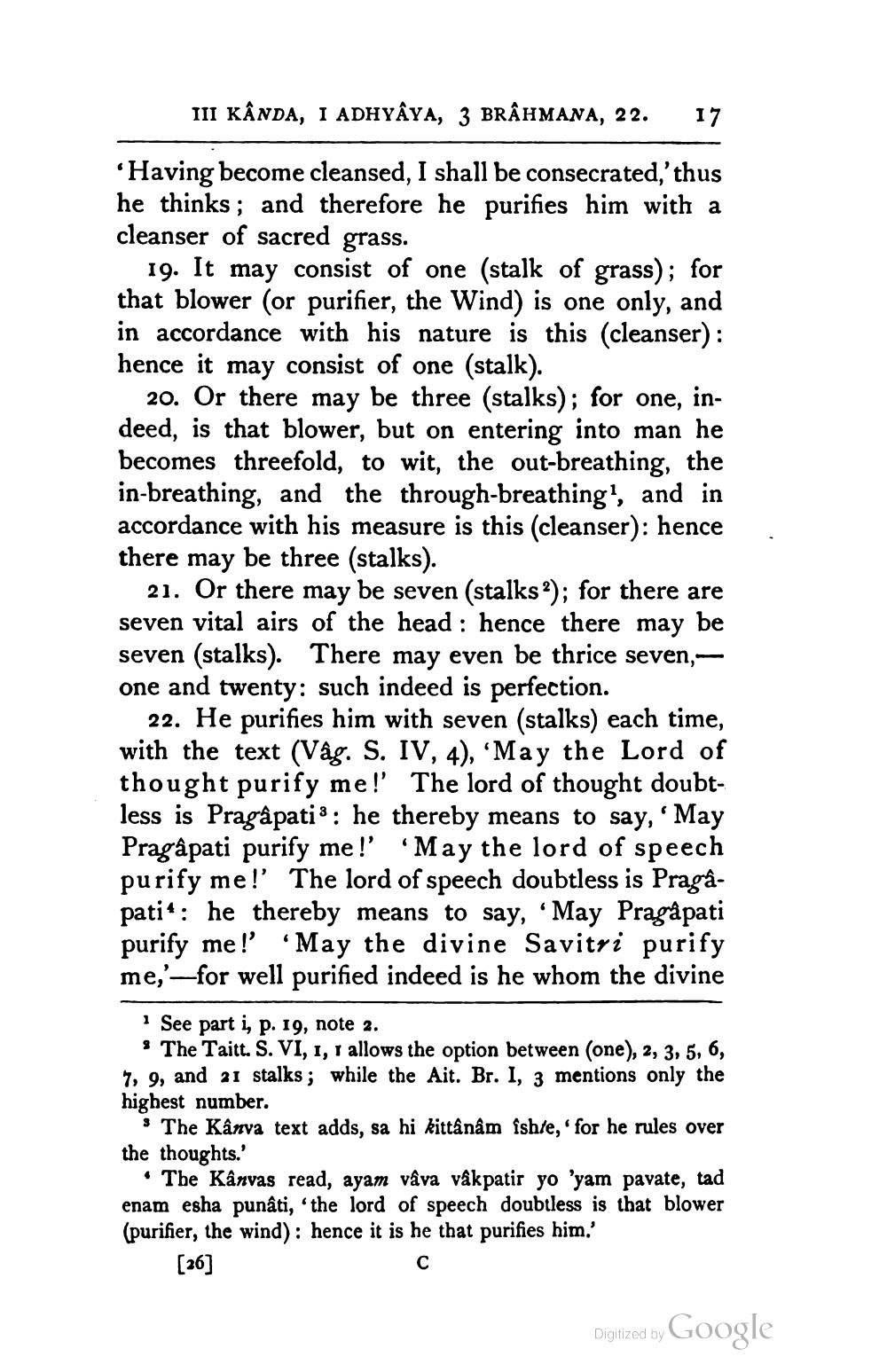________________
III KÂNDA, I ADHYÂYA, 3 BRAHMANA, 22.
17
‘Having become cleansed, I shall be consecrated,'thus he thinks; and therefore he purifies him with a cleanser of sacred grass.
19. It may consist of one (stalk of grass); for that blower (or purifier, the Wind) is one only, and in accordance with his nature is this (cleanser): hence it may consist of one (stalk).
20. Or there may be three (stalks); for one, indeed, is that blower, but on entering into man he becomes threefold, to wit, the out-breathing, the in-breathing, and the through-breathing', and in accordance with his measure is this (cleanser): hence there may be three (stalks).
21. Or there may be seven (stalks ); for there are seven vital airs of the head : hence there may be seven (stalks). There may even be thrice seven - one and twenty: such indeed is perfection.
22. He purifies him with seven (stalks) each time, with the text (Vág. S. IV, 4), “May the Lord of thought purify me!' The lord of thought doubtless is Pragâpati 3 : he thereby means to say, ' May Pragâpati purify me!' 'May the lord of speech purify me!' The lord of speech doubtless is Pragapati+: he thereby means to say, “May Pragåpati purify me!'May the divine Savitri purify me,'--for well purified indeed is he whom the divine
See parti, p. 19, note 2.
The Taitt. S. VI, 1, 1 allows the option between (one), 2, 3, 5, 6, 7, 9, and 21 stalks; while the Ait. Br. I, 3 mentions only the highest number.
s The Kânva text adds, sa hi kittânâm îsh/e,- for he rules over the thoughts.'
• The Kânvas read, ayam vâva våkpatir yo 'yam pavate, tad enam esha punâti, the lord of speech doubtless is that blower (purifier, the wind): hence it is he that purifies him.'
[26]
Digitized by Google




